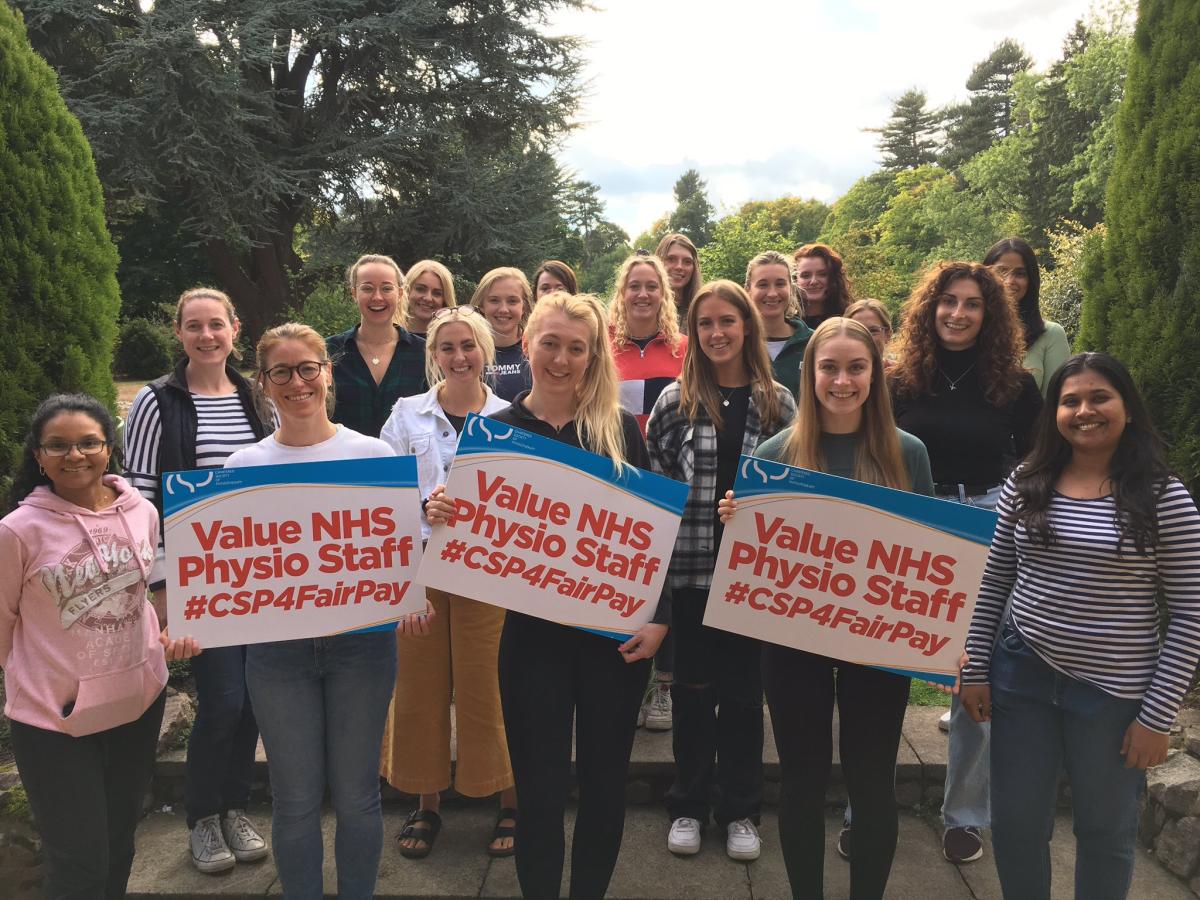Jill Taylor, chair of the CSP Employment committee outlines why the latest offer from the Scottish government has brought this response from the organisation.

The Scottish government's latest offer can be seen as a significant step forward that provides a solid pay rise for almost all members. It can also be acknowledged as below the current level of inflation for all but the lowest paid bands, and falling short of what we hoped for.
Our job as the CSP pay sub-committee of members is to look at all the evidence – economic, industrial, political – and reach a conclusion as to whether or not the offer could be improved through further negotiations or, as a last resort, strike action.
Having considered all that evidence, we believe this is an offer that members should accept, and we are recommending you do so in the consultation that we are launching today.
Our reasoning
Although it does not meet the current rate of inflation, other than for the lowest bands, there are significant increases for most bands.
The pay increases will remain in place permanently and therefore the longer-term benefit of them will continue to be felt once inflation returns to lower levels. For example, graduate starting pay for Band 5 will rise by 8.73 per cent.
Pay increases at this level are likely to begin to assist the current workforce crisis by improving recruitment and retention in the short and longer term.
Overall, the offer adds 7.5 per cent to the NHS pay bill, which represents a 50 per cent increase from what was originally on the table.
Furthermore, the offer contained additional non-pay elements that offer the chance for improvements on issues important to CSP members.
For example, since 2004, members in Bands 8/9 have not been able to be paid for overtime. The permanent change agreed to this is significant for senior clinicians as well for team leaders and managers.
Better protected time for learning and discussions on whether the working week could be reduced to 36 hours without loss of pay are two other areas where the CSP has been keen to make progress.
A pragmatic way forward
So the offer itself represents progress but there is also a need for pragmatism here.
The NHS in Scotland moved away from the PRB process and one of the hardest things about this is that direct negotiations have to reach an agreed outcome, as opposed to the government just announcing an award, like in the rest of the UK.
An agreed outcome inevitably requires compromises on both sides, and these are often uncomfortable and/or unsatisfactory.
The health union negotiators believe that this is the government’s final offer and the best that can be achieved through negotiation this year.
Don’t forget also that each day of any strike action costs members approximately 0.3 per cent of their annual pay, meaning the real-terms value of any subsequent offers have to take account of money already lost for strike days.
Taken as a whole, then, we believe the offer is a reasonable one.
And of course, the union hand during negotiations has been substantially strengthened by the strike mandate secured by you and your colleagues in other unions.
I therefore want to thank you for the outstanding yes vote you delivered in our ballot – it has made a big difference to our ability to reach this point.
We now believe we have an offer we can accept, and I would strongly urge you to do so.
Number of subscribers: 4
